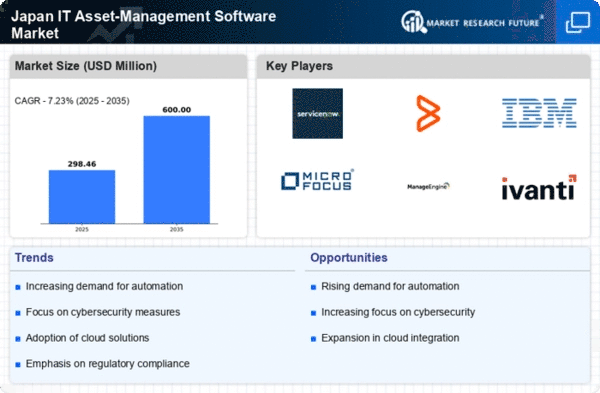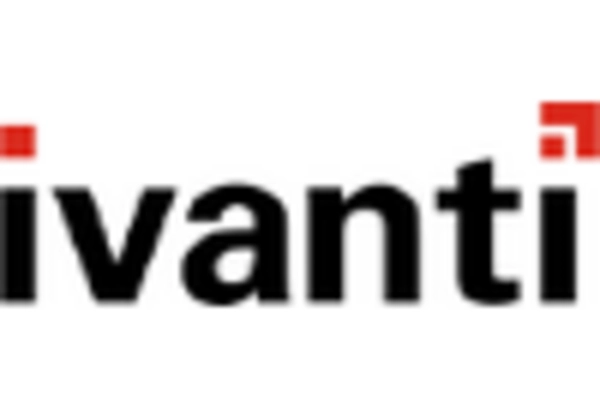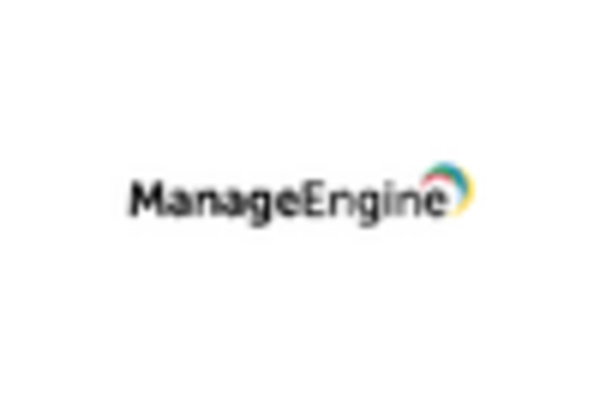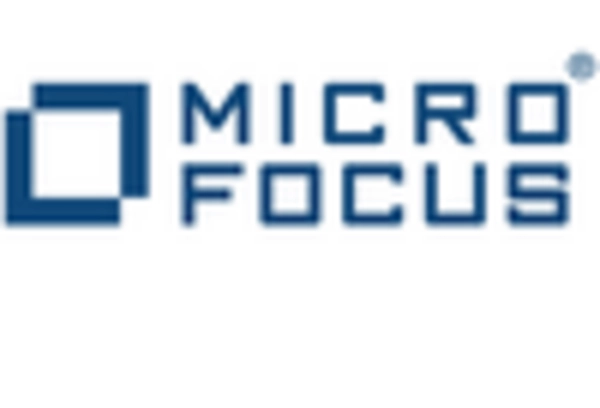Emphasis on Cost Reduction Strategies
In the context of Japan's competitive business landscape, organizations are increasingly prioritizing cost reduction strategies, which significantly impacts the it asset-management-software market. Companies are seeking ways to streamline operations and minimize unnecessary expenditures. Effective asset management software enables organizations to identify underutilized assets and optimize resource allocation, potentially leading to cost savings of up to 25%. This focus on financial efficiency is particularly relevant in sectors such as retail and manufacturing, where margins can be tight. As businesses continue to navigate economic pressures, the demand for it asset-management-software solutions that facilitate cost-effective asset management is likely to rise, driving market growth and innovation.
Rising Demand for IT Asset Visibility
The it asset-management-software market in Japan experiences a notable surge in demand for enhanced visibility of IT assets. Organizations are increasingly recognizing the necessity of tracking and managing their IT resources effectively. This trend is driven by the need to optimize asset utilization and reduce operational costs. According to recent data, companies that implement robust asset management solutions can achieve up to 30% savings in IT expenditures. Furthermore, the growing complexity of IT environments necessitates sophisticated software solutions that provide real-time insights into asset performance and lifecycle management. As businesses strive for operational efficiency, The market is poised for growth., with a projected increase in adoption rates across various sectors, including finance, healthcare, and manufacturing.
Growing Regulatory Compliance Requirements
The it asset-management-software market in Japan is increasingly influenced by stringent regulatory compliance requirements. Organizations are compelled to adhere to various laws and standards, such as the Personal Information Protection Act (PIPA) and the Act on the Protection of Personal Information. These regulations necessitate comprehensive asset management practices to ensure data security and compliance. As a result, companies are investing in software solutions that not only manage IT assets but also ensure compliance with legal frameworks. The market is expected to witness a growth rate of approximately 15% as businesses prioritize compliance-driven asset management strategies. This trend underscores the importance of integrating compliance features into asset management software to mitigate risks and enhance organizational accountability.
Increased Focus on Sustainability and Green IT
Sustainability has emerged as a critical consideration for businesses in Japan, influencing the it asset-management-software market. Organizations are increasingly adopting green IT practices, which emphasize the efficient use of resources and the reduction of environmental impact. Asset management software plays a vital role in this transition by enabling companies to track the lifecycle of their IT assets and identify opportunities for recycling and responsible disposal. The market is witnessing a growing demand for solutions that support sustainability initiatives, with projections indicating a potential growth of 18% in the coming years. This focus on sustainability not only aligns with corporate social responsibility goals but also enhances brand reputation, making it a key driver in the evolution of the it asset-management-software market.
Shift Towards Remote Work and Digital Transformation
The ongoing shift towards remote work and digital transformation is reshaping the it asset-management-software market in Japan. As organizations adapt to new work environments, the need for effective management of IT assets becomes paramount. Companies are increasingly investing in software solutions that facilitate remote monitoring and management of assets, ensuring operational continuity. This trend is particularly pronounced in the technology and service sectors, where remote work has become the norm. The market is projected to grow by 20% as businesses seek to enhance their digital capabilities. and streamline asset management processes. This shift not only improves efficiency but also supports the broader digital transformation initiatives that many organizations are undertaking.
















